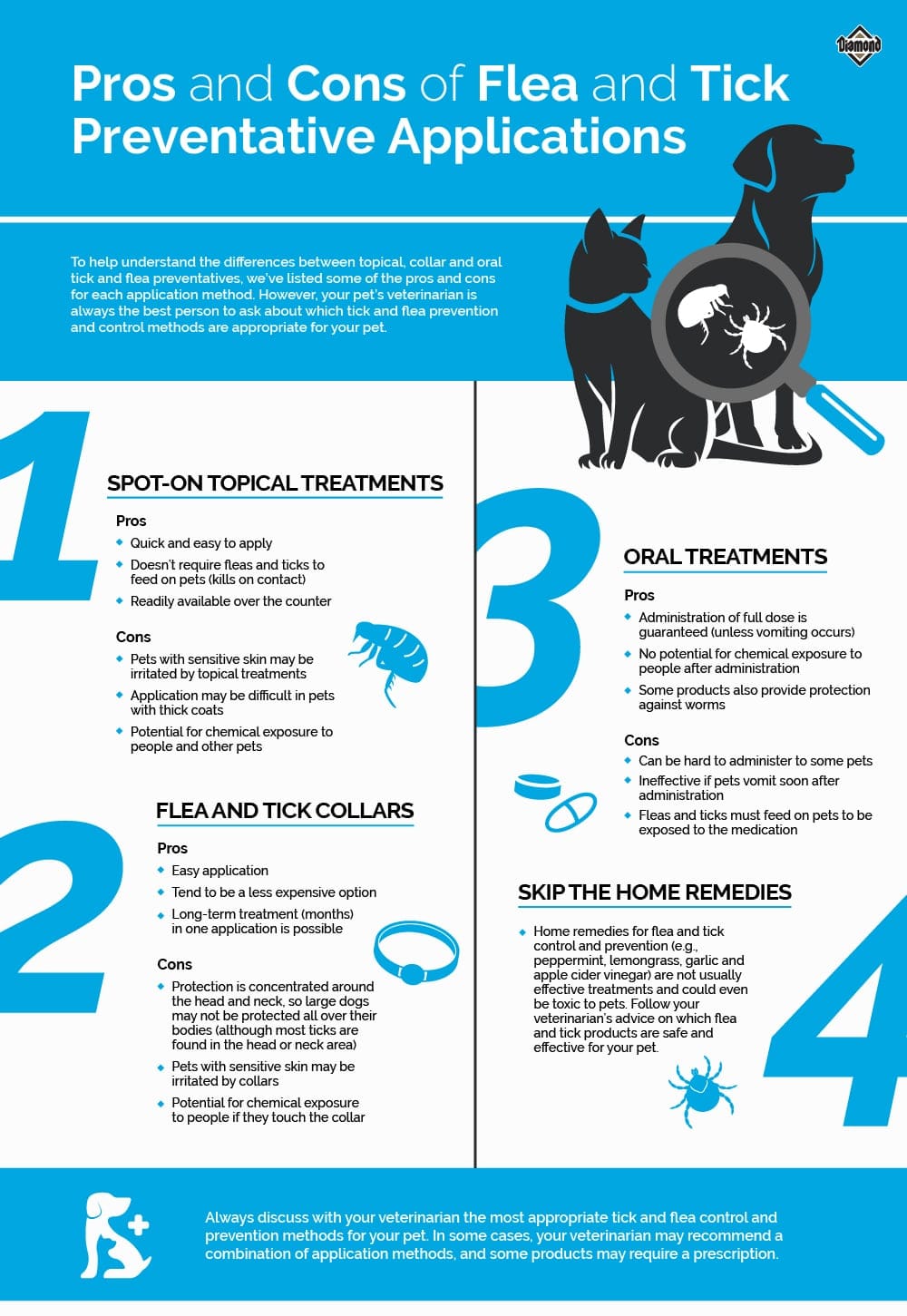Fleas and ticks pose a significant threat to your dog’s health, acting as vectors for various dangerous diseases. Understanding how dogs contract these parasites and the importance of preventative measures is crucial for any responsible pet owner. This guide will delve into the causes of flea and tick infestations, the significance of preventatives, available product types, and essential safety considerations.
How Dogs Contract Fleas and Ticks
Dogs typically acquire fleas by encountering environments where these parasites thrive. This includes outdoor areas with shaded, leafy debris, under decks, and even within the home, where fleas can inhabit carpet fibers and hide beneath furniture. Ticks, on the other hand, are contracted through exposure to tick-infested habitats such as tall grass or wooded areas, where they lie in wait to attach to a passing animal.
The Importance of Flea and Tick Preventatives
Preventing flea and tick infestations is paramount because these parasites can carry and transmit a range of diseases. Flea preventatives are a vital part of maintaining your dog’s well-being. Fleas commonly lead to tapeworm infections and painful skin conditions like flea allergy dermatitis. Ticks are carriers of serious illnesses including anaplasmosis, Lyme disease, ehrlichiosis, and Rocky Mountain spotted fever. Furthermore, both fleas and tick-borne diseases can be zoonotic, meaning they pose a risk to human health as well. Therefore, keeping your pets free from these parasites is also essential for the health of the entire household.
Available Flea and Tick Preventative Products
A wide array of preventative products is available, offering various methods of administration and varying monthly costs. When choosing a product, it’s important to consider both effectiveness and your budget.
Some collars, like Seresto, are designed to repel fleas and ticks and can even prevent ticks from attaching, provided they are fitted tightly enough to ensure skin contact. Many topical treatments containing permethrin, such as K9 Advantix II and Vectra 3D, also offer repellent properties and prevent tick attachment.
Topical products formulated with fipronil, like Frontline, do not prevent tick attachment, meaning you might still find ticks on your pet. These products typically kill ticks only after they have been attached for approximately 24 hours.
Oral preventatives containing isoxazoline, including Nexgard, Simparica, Credelio, and Bravecto, also do not prevent tick attachment. However, they are known for their relatively fast tick kill times. The speed at which a tick is killed is significant because of the diseases that can be transmitted if a tick remains attached for an extended period. For instance, it generally takes at least 1-2 days for the bacteria causing Lyme disease to spread to a dog.
The following chart summarizes common flea and tick preventative products:
| Product | Frequency | Prescription | Chewable | Topical | Collar | Prevents tick attachment |
|---|---|---|---|---|---|---|
| K9 Advantix II | 1 month | X | X | |||
| Vectra 3D | 1 month | X | X | |||
| Frontline | 1 month | X | ||||
| Simparica, Nexgard, Credelio | 1 month | X | X | |||
| Bravecto | 3 months | X | X | X | ||
| Seresto | 8 months | X | X |
Choosing the Right Preventative
While owner preference for collars, topicals, or chewables plays a role, products that rapidly eliminate fleas and ticks or effectively prevent tick attachment are generally preferred. Your veterinarian is the best resource to help you select the most suitable preventative for your dog’s specific needs and your lifestyle. Ultimately, the ideal product is one that is both safe and effective, and that you can administer to your dog consistently and without difficulty.
Year-Round Prevention is Key
Year-round flea and tick prevention is the most effective strategy. Even in colder months, ticks can remain active when temperatures reach around 40 degrees Fahrenheit, a common occurrence in many regions during winter. Furthermore, fleas can easily thrive indoors, protected from the outdoor elements, making consistent prevention indoors equally important.
Water Safety with Preventatives
Most flea and tick preventatives are water-resistant. However, it’s generally recommended to allow topical treatments to dry completely, typically for about two days, before bathing or swimming. While collars can usually remain on during water activities, frequent submersion may reduce their efficacy, potentially requiring earlier replacement.
Safety Considerations for Flea and Tick Preventatives
Flea and tick preventatives are generally well-tolerated by dogs, possessing a wide safety margin. Nevertheless, as with any medication, side effects can occur. Owners should monitor their pets for signs of anxiety, itchiness, gastrointestinal issues such as vomiting or diarrhea, or skin redness and irritation.
It is crucial to read product labels carefully, as many products safe for dogs are toxic to cats, for instance, K9 Advantix II. Oral chewables containing isoxazoline have been rarely associated with seizures. If your dog has a history of seizures or any seizure disorder, it is imperative to consult your veterinarian before using any preventatives containing this medication.
Flea and Tick Prevention for Pregnant or Nursing Dogs
Products containing fipronil, such as Frontline and Parastar, are typically considered safe for pregnant or nursing dogs. However, for any other collar or topical product intended for use on pregnant or nursing dogs, consultation with your veterinarian is strongly advised. The safety of oral preventatives has not yet been established for pregnant or nursing dogs.

